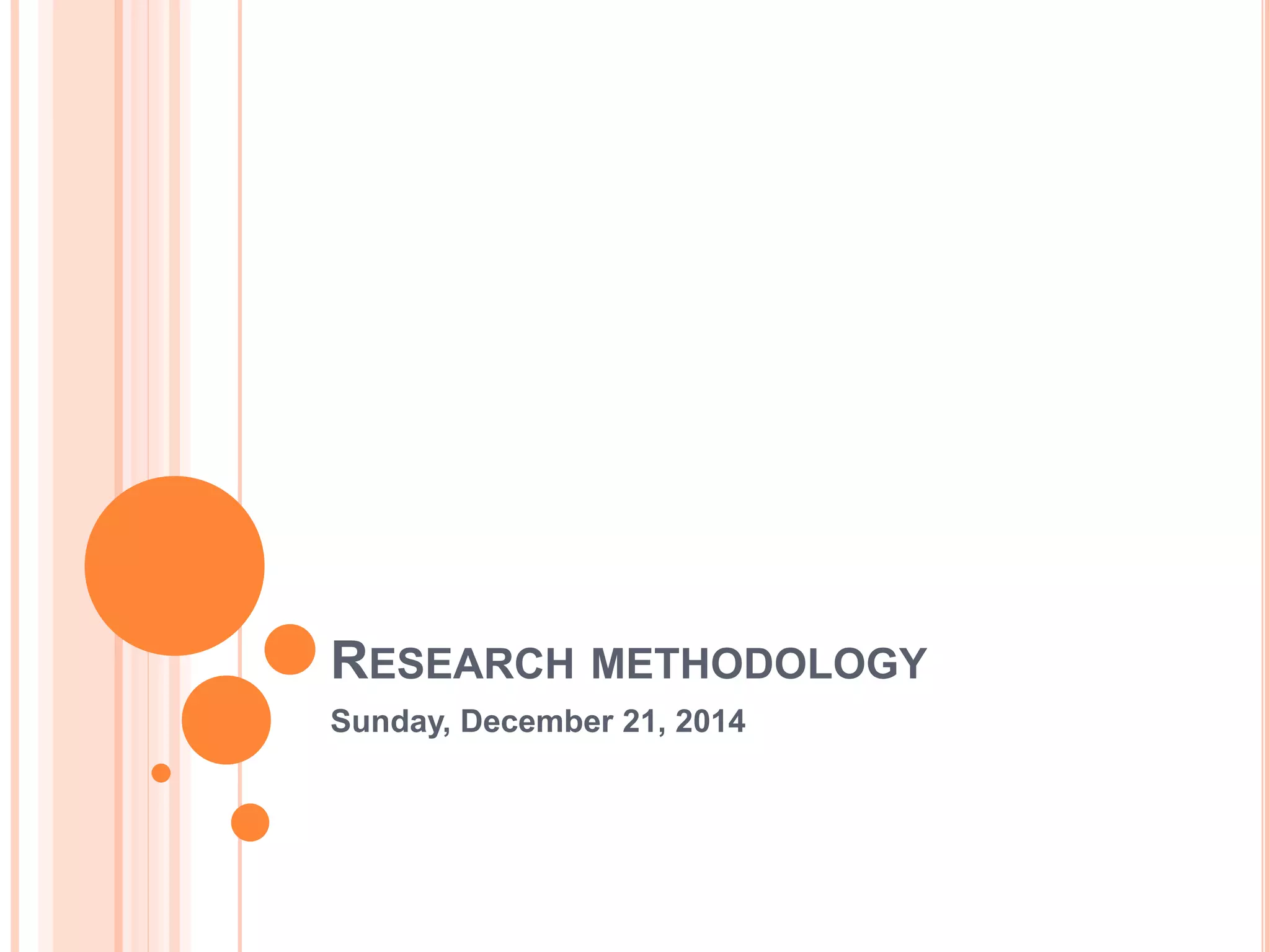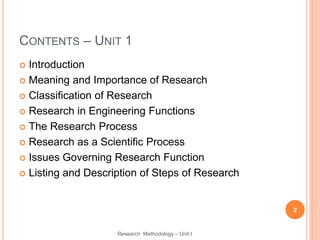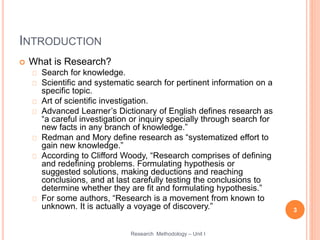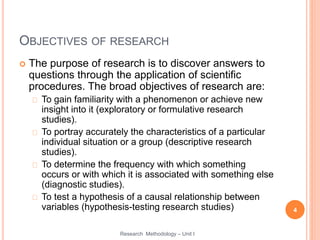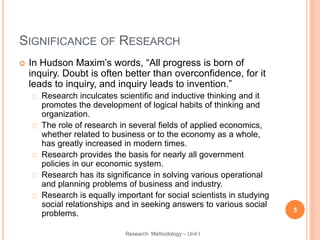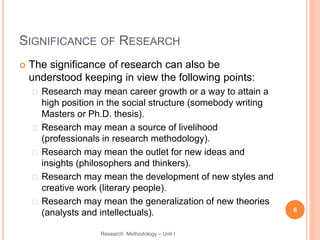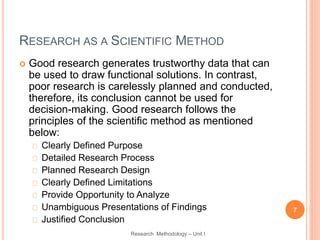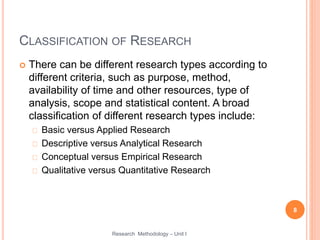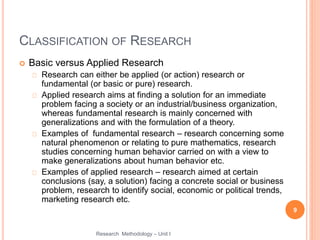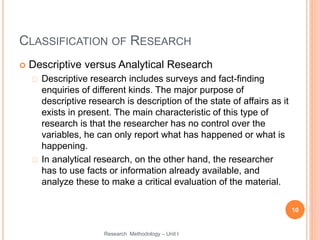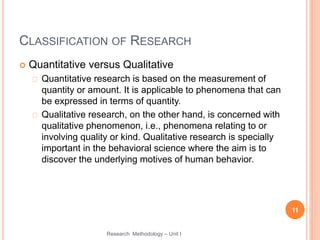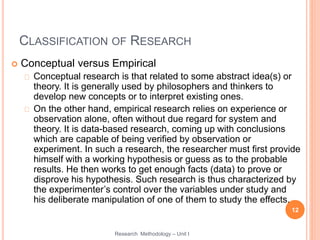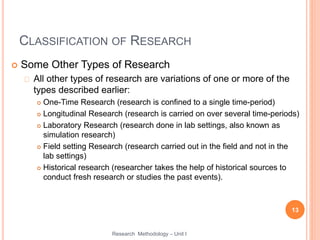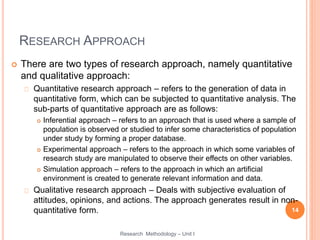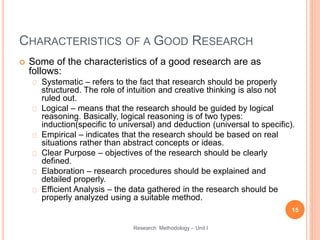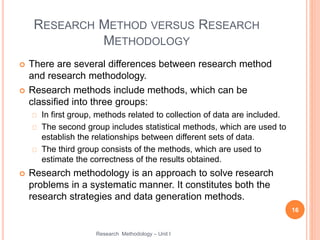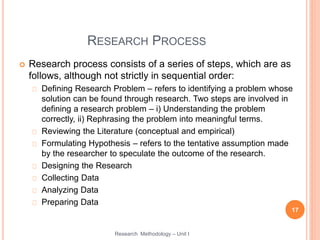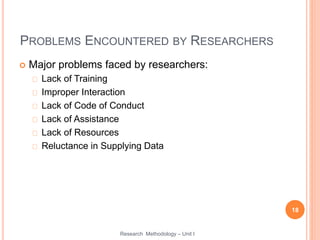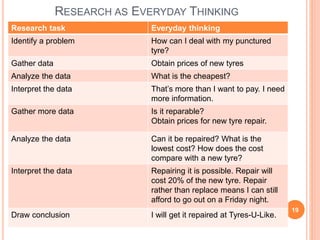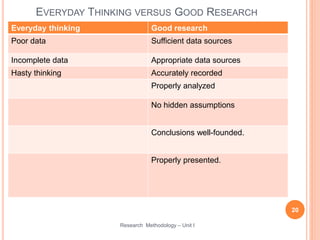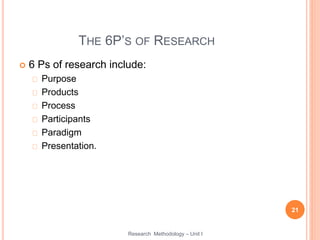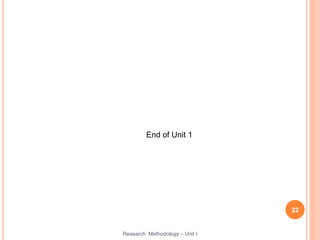This document provides an overview of research methodology. It discusses key topics such as the meaning and importance of research, classification of research types, the research process, and characteristics of good research. Specifically, it covers:
- The objectives of research including exploration, description, diagnosis, and hypothesis testing.
- The significance of research in advancing knowledge and solving problems.
- How research follows the scientific method principles of clearly defined purpose, planned process, and justified conclusions.
- Classification of research as basic vs applied, descriptive vs analytical, quantitative vs qualitative, and conceptual vs empirical.
- The characteristics of good research as being systematic, logical, empirical, and having a clear purpose.
